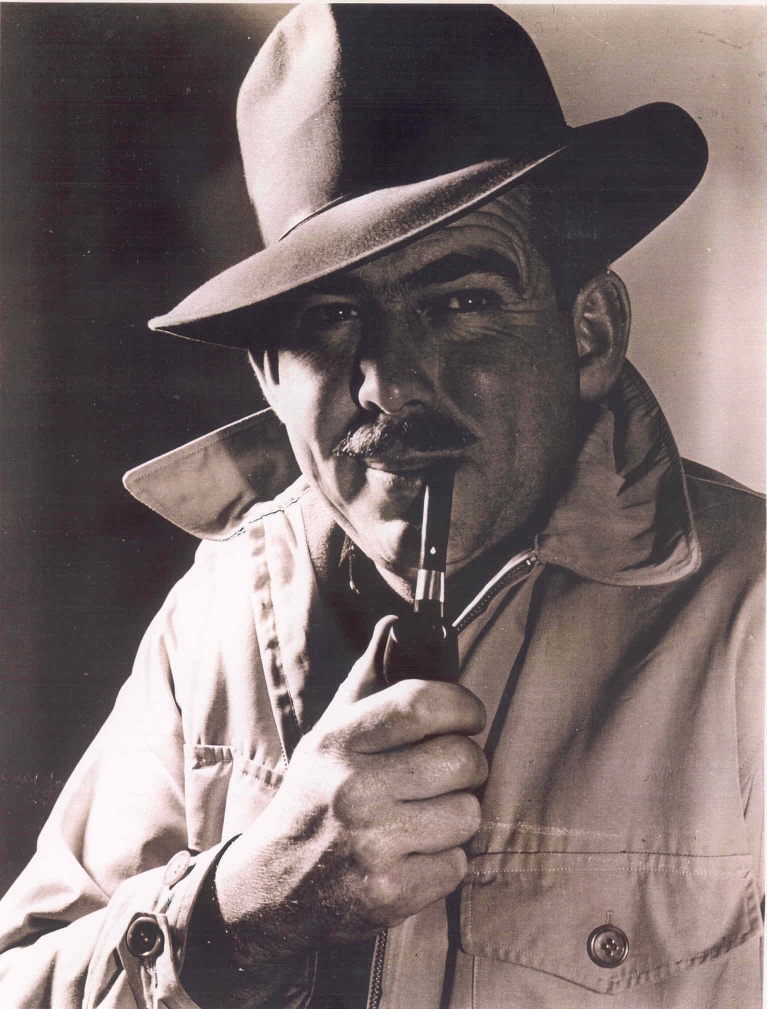Kingsley Tufts: His Life in Poetry

For almost twenty-five years Claremont Graduate University has administered one of the largest poetry prizes in the world, The Kingsley Tufts Poetry Award. But who exactly was Kingsley Tufts, and why does such a prestigious honor bear his name? Uncovering sufficient answers to these questions is inherently a two-part endeavor; it involves gaining knowledge about both Tufts the man and Tufts the poet.
Born as an Indiana farm boy on April 19, 1907, Kingsley Tufts explored multiple seemingly contradictory roles and varied pursuits throughout his richly complex life. After a successful stint as a semi-pro baseball player as a young man, Tufts was offered a spot with the Chicago Cubs that he promptly declined. In 1928, he earned his BA in economics from Stanford University and became a certified public accountant. He went on to earn his MA in philosophy, once again at Stanford, in 1937. After abandoning academia, he additionally worked as an executive in the Los Angeles shipyards during World War II. Judging from anecdotal evidence and archival photographs, Kingsley was a lovable lover of cigars and guitars, a rakish rambler of the Californian countryside and ocean. He was also an intriguing amateur visual artist and often played the flute at his home in the Hollywood Hills.

But Kingsley Tufts’ most compelling creative hobby was his almost half century preoccupation with the written word. After settling in Santa Monica during the 1930s, Tufts began writing plays, poems, and fiction. And after selling his first story to The Saturday Evening Post in 1946, his prose and poetry also appeared in such renowned publications as The New Yorker, Ladies’ Home Journal, Collier’s, Liberty, and Esquire. During the next three decades, the author focused solely on poetry and self-published eleven collections of verses during the 1980s and early 1990s.

Tufts’ poetry is steeped in a subtle beauty. Although his wife, Kate, supportively deemed his verses simply old-fashioned, scholar Jack Miles suggests that Kingsley chose to work within “a free-spirited, full-throated Whitmananian tradition, a tradition that loved the workplace and open road better than it loved the classroom.” Tufts himself remarks on his own creative stance in his poem “Resolution”: “I’ll use the old words gladly / In a plain and natural way” (62). In the posthumous After Images: The Collected Poems of Kingsley Tufts (Fithian Press, 1994), his work is sometimes playful yet also paradoxically earnest, though more habitually observational or metaphysical in tone. In an unassuming form that often employs conventional rhythms and rhymes, his poems are reflective of a humble and introspective approach to life and artistic creation that yields pockets of piercing poetic insights. “The Fence” expresses Tufts’ self-doubt as a wordsmith: “I wonder, do you have a sense / Of how I talk to you / Across the ink-and-paper fence / That separates us two?” (58). In “Variation On An Old Theme,” the poet provides a symbolic perspective of isolating mutations in the natural world: “The white winged bluejay flies alone, / Predestined by a feather” (89). And in “Life After Death,” Tufts convincingly contemplates mortality: “And death is like a legacy / Our hearts spend beat by beat” (341). The collection is an interesting retrospective of over thirty years of poetry, containing Tufts’ musings on poetry, love, war, nature, life, and death.
Even when contemplating his death, Tufts was concerned with poetry. Kingsley and Kate had a deal: “Whoever outlived the other would try to endow an annual prize – enough, they hoped, to put bread on a worthy poet’s table for at least a year, to free a working artist to think and write full-time” (Wallace). Therefore in 1992, a year after her husband’s death, Kate honored her promise and established the Kingsley Tufts Poetry Award for poets in the middle of their careers geared toward nurturing these authors toward new creative heights.
It is highly fitting that Kingsley Tufts is memorialized through this CGU endowment. For Tufts considered himself extremely lucky to be able to work throughout his life to finance his poetic expression. According to Mrs. Tufts, “Most poets don’t have his advantage of being able to make money.” In the recent past most poetic authors couldn’t afford to privately publish their work and therefore their poetry disappeared “down the drain” (Wallace). Even in today’s ever-expanding publishing market, it is difficult for poets to gain widespread acknowledgment and readership. The Kingsley Tufts Award provides both increased recognition to recipients and allows them to further explore their craft unhindered by economic concerns, helping “save talented poets from such an anonymous fate” (Wallace). Through his generosity, Kingsley Tufts sparked an ongoing tradition that gives poets an artistic endorsement that he himself never achieved. By giving back to the poetic world after his death, a world that Tufts had already generously contributed to in life through his relentless pursuit of creation for creation’s sake, the self-made poet has earned an unlooked for immortality and perhaps even an increase in the longitudinal impact of his own body of poetic work.
—Brock Rustin
Share